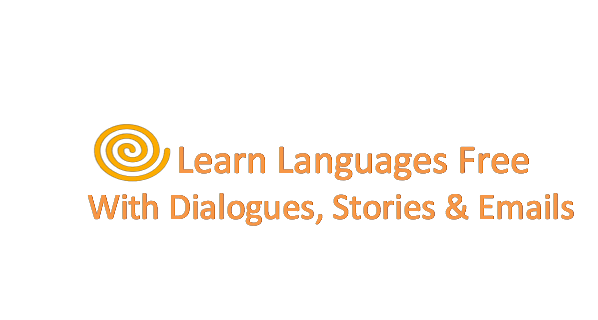Introduction:
In today’s globalized world, being multilingual is more valuable than ever. Whether you’re traveling, working in an international environment, or simply curious about other cultures, knowing how to talk about your profession in multiple languages can open doors and create connections. This guide is designed to help you confidently describe your job in six different languages: English, German, French, Spanish, Italian, and Hinglish. Each language brings its own unique flair and cultural nuances, and understanding these can greatly enhance your communication skills. From the formal tones of German and French to the vibrant expressions of Spanish and Italian, and even the colloquial blend of Hindi and English in Hinglish, you’ll find that discussing your profession becomes an exciting exploration of language and culture. Whether you’re an architect, teacher, engineer, or in any other profession, this guide provides you with the essential phrases and vocabulary to articulate your role and responsibilities in a way that resonates with speakers of these languages. Let’s embark on this linguistic journey and enrich your ability to connect with people around the world through the universal topic of work.
Here’s the dialogue with each sentence provided in English, German, French, Spanish, Italian, and Hinglish:
Person A:
- English: Good morning! What do you do for a living?
- German: Guten Morgen! Was machst du beruflich?
- French: Bonjour ! Que fais-tu dans la vie ?
- Spanish: ¡Buenos días! ¿A qué te dedicas?
- Italian: Buongiorno! Cosa fai nella vita?
- Hinglish: Good morning! Tum kya karte ho zindagi mein?
Person B
- English: Good morning! I’m an architect. I design buildings and ensure that they are safe and functional. And you?
- German: Guten Morgen! Ich bin Architekt. Ich entwerfe Gebäude und sorge dafür, dass sie sicher und funktional sind. Und du?
- French: Bonjour ! Je suis architecte. Je conçois des bâtiments et je m’assure qu’ils sont sûrs et fonctionnels. Et toi ?
- Spanish: ¡Buenos días! Soy arquitecto. Diseño edificios y me aseguro de que sean seguros y funcionales. ¿Y tú?
- Italian: Buongiorno! Sono un architetto. Progetto edifici e mi assicuro che siano sicuri e funzionali. E tu?
- Hinglish: Good morning! Main ek architect hoon. Main buildings design karta hoon aur ensure karta hoon ki woh safe aur functional hon. Aur tum?
Person A:
- English: That sounds interesting! I’m a teacher. I teach mathematics at a school.
- German: Das klingt interessant! Ich bin Lehrerin. Ich unterrichte Mathematik an einer Schule.
- French: Ça a l’air intéressant ! Je suis enseignante. J’enseigne les mathématiques dans une école.
- Spanish: ¡Eso suena interesante! Soy profesora. Enseño matemáticas en una escuela.
- Italian: Sembra interessante! Sono un’insegnante. Insegno matematica in una scuola.
- Hinglish: Yeh interesting lagta hai! Main ek teacher hoon. Main ek school mein mathematics padhaati hoon.
Person B:
- English: That must be a fulfilling job. I have great respect for teachers.
- German: Das muss eine erfüllende Arbeit sein. Ich habe großen Respekt vor Lehrern.
- French: Ça doit être un travail épanouissant. J’ai beaucoup de respect pour les enseignants.
- Spanish: Eso debe ser un trabajo gratificante. Tengo mucho respeto por los profesores.
- Italian: Deve essere un lavoro gratificante. Ho grande rispetto per gli insegnanti.
- Hinglish: Yeh ek fulfilling job honi chahiye. Mujhe teachers ke liye bohot respect hai.
Person A:
- English: Thank you! It’s sometimes challenging, but I really enjoy it. Do you have many projects as an architect?
- German: Danke! Es ist manchmal herausfordernd, aber es macht mir viel Spaß. Hast du viele Projekte als Architekt?
- French: Merci ! C’est parfois difficile, mais ça me plaît beaucoup. As-tu beaucoup de projets en tant qu’architecte ?
- Spanish: ¡Gracias! A veces es desafiante, pero me gusta mucho. ¿Tienes muchos proyectos como arquitecto?
- Italian: Grazie! A volte è una sfida, ma mi piace molto. Hai molti progetti come architetto?
- Hinglish: Shukriya! Kabhi-kabhi yeh challenging hota hai, lekin mujhe bohot maza aata hai. Kya tumhare paas architect ke kaafi projects hain?
Person B:
- English: Yes, at the moment, I’m working on a large residential complex. It’s exciting, but also a lot of work.
- German: Ja, zurzeit arbeite ich an einem großen Wohnkomplex. Es ist spannend, aber auch sehr viel Arbeit.
- French: Oui, en ce moment, je travaille sur un grand complexe résidentiel. C’est passionnant, mais aussi beaucoup de travail.
- Spanish: Sí, en este momento, estoy trabajando en un gran complejo residencial. Es emocionante, pero también mucho trabajo.
- Italian: Sì, al momento sto lavorando su un grande complesso residenziale. È emozionante, ma anche molto lavoro.
- Hinglish: Haan, is waqt main ek bade residential complex par kaam kar raha hoon. Yeh exciting hai, lekin saath mein kaafi kaam bhi hai.
Person A:
- English: I believe that. But it must be nice to see the finished building in the end.
- German: Das glaube ich. Aber es muss schön sein, am Ende das fertige Gebäude zu sehen.
- French: Je te crois. Mais ça doit être agréable de voir le bâtiment terminé à la fin.
- Spanish: Lo creo. Pero debe ser agradable ver el edificio terminado al final.
- Italian: Lo credo. Ma deve essere bello vedere l’edificio finito alla fine.
- Hinglish: Main yeh maan sakti hoon. Lekin yeh kaafi acha lagta hoga jab building khatam hoti hai.
Person B:
- English: Definitely! It’s always a great feeling when everything is finished and people can use it.
- German: Auf jeden Fall! Es ist immer ein tolles Gefühl, wenn alles fertig ist und die Leute es nutzen können.
- French: Absolument ! C’est toujours un grand plaisir quand tout est fini et que les gens peuvent l’utiliser.
- Spanish: ¡Definitivamente! Siempre es una gran satisfacción cuando todo está terminado y la gente puede usarlo.
- Italian: Sicuramente! È sempre una grande soddisfazione quando tutto è finito e la gente può usarlo.
- Hinglish: Bilkul! Jab sab kuch khatam ho jata hai aur log use kar sakte hain, toh bohot acha lagta hai.
Person A:
- English: I can imagine that. Maybe one day I’ll be teaching in one of your buildings!
- German: Das kann ich mir vorstellen. Vielleicht unterrichte ich eines Tages in einem deiner Gebäude!
- French: Je peux l’imaginer. Peut-être que je vais enseigner un jour dans l’un de tes bâtiments !
- Spanish: Puedo imaginarlo. ¡Quizás algún día enseñaré en uno de tus edificios!
- Italian: Posso immaginarlo. Forse un giorno insegnerò in uno dei tuoi edifici!
- Hinglish: Main yeh imagine kar sakti hoon. Shayad ek din main tumhare kisi building mein padha rahi hoon!
Person B:
- English: That would be great! Who knows, the world is small.
- German: Das wäre großartig! Wer weiß, die Welt ist klein.
- French: Ce serait super ! Qui sait, le monde est petit.
- Spanish: ¡Eso sería genial! Quién sabe, el mundo es pequeño.
- Italian: Sarebbe fantastico! Chissà, il mondo è piccolo.
- Hinglish: Woh bohot acha hoga! Kaun jaane, duniya bohot chhoti hai.
Person A:
- English: Yes, that’s true. It was nice talking to you.
- German: Ja, das stimmt. Es war schön, mit dir zu sprechen.
- French: Oui, c’est vrai. C’était sympa de te parler.
- Spanish: Sí, es verdad. Fue un placer hablar contigo.
- Italian: Sì, è vero. È stato bello parlare con te.
- Hinglish: Haan, yeh sach hai. Tumse baat karke accha laga.
Person B:
- English: Same here! Have a nice day.
- German: Ebenso! Hab einen schönen Tag.
- French: Moi aussi ! Passe une bonne journée.
- Spanish: Igualmente. ¡Que tengas un buen día!
- Italian: Anche per me! Buona giornata.
- Hinglish: Mujhe bhi! Tumhara din accha guzre.
Person A:
- English: Thank you, you too!
- German: Danke, du auch!
- French: Merci, toi aussi !
- Spanish: ¡Gracias, igualmente!
- Italian: Grazie, altrettanto!
- Hinglish: Shukriya, tumhara bhi!
Conclusion:
Mastering the ability to talk about your profession in multiple languages is not just a practical skill; it is a gateway to deeper cultural understanding and more meaningful global interactions. As we’ve explored in this guide, each language—whether it’s the precise structure of German, the elegant rhythm of French, the passionate tone of Spanish, the melodic flow of Italian, or the dynamic mix of Hinglish—offers a distinct way of expressing your professional identity. By learning these expressions, you’re not only expanding your linguistic repertoire but also embracing the diverse ways in which people across the world relate to their work. This knowledge can prove invaluable in both personal and professional contexts, enhancing your communication, broadening your career opportunities, and making you a more versatile and culturally aware individual. As you continue to practice and apply these phrases, you’ll find yourself more connected and engaged with people from different backgrounds, fostering stronger relationships and expanding your global network. Remember, language is a powerful tool, and the ability to converse about your profession in multiple tongues is a significant step towards becoming a true global citizen, a true global resident of the earth.
You may also like:
- Bad Boss
- Humor
- Retire Early
- Fire Your Boss
- Job Liberation
- Failure Stories
- AnalyticsPedia
- Travel Food Culture
- Learn Languages
- Do What You Love
- Human Behavior Analytics


